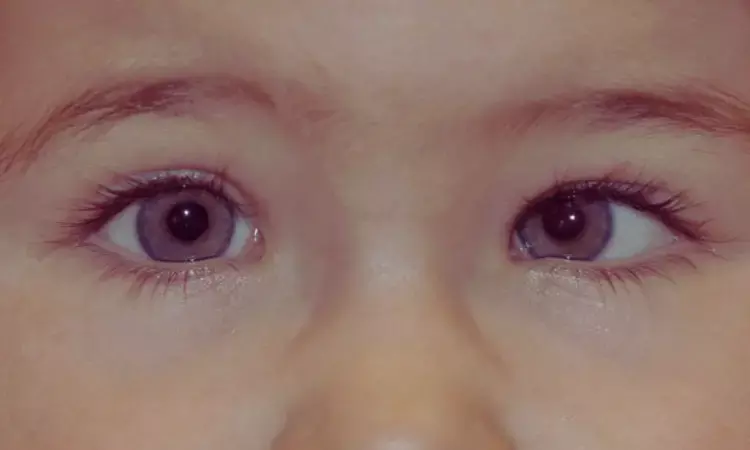- Home
- Medical news & Guidelines
- Anesthesiology
- Cardiology and CTVS
- Critical Care
- Dentistry
- Dermatology
- Diabetes and Endocrinology
- ENT
- Gastroenterology
- Medicine
- Nephrology
- Neurology
- Obstretics-Gynaecology
- Oncology
- Ophthalmology
- Orthopaedics
- Pediatrics-Neonatology
- Psychiatry
- Pulmonology
- Radiology
- Surgery
- Urology
- Laboratory Medicine
- Diet
- Nursing
- Paramedical
- Physiotherapy
- Health news
- Fact Check
- Bone Health Fact Check
- Brain Health Fact Check
- Cancer Related Fact Check
- Child Care Fact Check
- Dental and oral health fact check
- Diabetes and metabolic health fact check
- Diet and Nutrition Fact Check
- Eye and ENT Care Fact Check
- Fitness fact check
- Gut health fact check
- Heart health fact check
- Kidney health fact check
- Medical education fact check
- Men's health fact check
- Respiratory fact check
- Skin and hair care fact check
- Vaccine and Immunization fact check
- Women's health fact check
- AYUSH
- State News
- Andaman and Nicobar Islands
- Andhra Pradesh
- Arunachal Pradesh
- Assam
- Bihar
- Chandigarh
- Chattisgarh
- Dadra and Nagar Haveli
- Daman and Diu
- Delhi
- Goa
- Gujarat
- Haryana
- Himachal Pradesh
- Jammu & Kashmir
- Jharkhand
- Karnataka
- Kerala
- Ladakh
- Lakshadweep
- Madhya Pradesh
- Maharashtra
- Manipur
- Meghalaya
- Mizoram
- Nagaland
- Odisha
- Puducherry
- Punjab
- Rajasthan
- Sikkim
- Tamil Nadu
- Telangana
- Tripura
- Uttar Pradesh
- Uttrakhand
- West Bengal
- Medical Education
- Industry
Study Links Maternal Hypertensive Disorders to 82 Percent Higher Risk of Childhood Strabismus

China: A cohort study of 3117 children revealed an 82% higher overall risk of strabismus at three years of age in offspring born to mothers with hypertensive disorder of pregnancy (HDP). Furthermore, the highest risk was observed in offspring with maternal preeclampsia and poorly controlled blood pressure (BP).
The findings, published in JAMA Network Open, suggest that early strabismus screening might be recommended for offspring born to mothers with HDP, particularly those with maternal preeclampsia or poorly controlled BP.
Maternal health during pregnancy has long been recognized as a crucial factor influencing the long-term health outcomes of offspring. Strabismus, commonly known as crossed eyes or squint, is a condition where the eyes do not align properly. It affects approximately 4% of children worldwide and can lead to visual impairment if not treated early.
Maternal HDP might impact ocular health in offspring, yet there is no clarity on its association with strabismus. To fill this knowledge gap, Hui Zhu, The First Affiliated Hospital with Nanjing Medical University, Nanjing, China, and colleagues aimed to investigate the association of maternal HDP with overall and type-specific strabismus in offspring.
In the Jiangsu Birth Cohort study conducted in China, pregnant women were enrolled between 2014 and 2018. Out of the initial cohort, which included information on maternal HDP for 6,195 offspring, 3,078 were excluded either due to lack of data on ocular alignment or because they had ocular conditions other than strabismus or refractive error. At the age of 3 years, the remaining children underwent comprehensive ocular examinations completed by May 21, 2022. The data collected were subsequently analyzed from May 28, 2022, to December 15, 2023.
Maternal hypertensive disorders in pregnancy were categorized into groups including hypertension, preeclampsia, or cases where blood pressure (BP) was well controlled (systolic BP <130 mm Hg; diastolic BP <80 mm Hg) versus poorly controlled (systolic BP ≥130 mm Hg; diastolic BP ≥80 mm Hg).
The main focus was on determining the occurrence of strabismus among offspring. Poisson generalized linear mixed models were employed to assess the relationship between maternal HDP and the likelihood of strabismus developing in children.
The following were the key findings of the study:
- Among the included 3117 children (mean age, 36.30 months; 52.3% boys), 4.6% were exposed to maternal HDP, and 11.8% had strabismus.
- Offspring exposed to maternal HDP had an 82% increased risk of overall strabismus (relative risk [RR], 1.82), an 82% increased risk of exophoria (RR, 1.82), and a 136% increased risk of intermittent exotropia (RR, 2.36) compared with unexposed offspring.
- When considering the type of maternal HDP, the risk for all strabismus was high for offspring exposed to preeclampsia (RR, 2.38) compared with unexposed offspring.
- When considering the BP control level of maternal HDP, the risk for all strabismus was high for offspring born to mothers with HDP and poorly controlled BP (RR, 2.07) compared with unexposed offspring.
"The results indicate a heightened likelihood of strabismus in offspring born to mothers with hypertensive disorders in pregnancy. Early screening for strabismus could be advisable for children whose mothers experienced HDP. Further investigation into the mechanisms linking HDP and strabismus is essential to understand this association," the researchers concluded.
Reference:
Zhu H, You X, Jing Y, et al. Maternal Hypertensive Disorder in Pregnancy and Childhood Strabismus in Offspring. JAMA Netw Open. 2024;7(7):e2423946. doi:10.1001/jamanetworkopen.2024.23946
Dr Kamal Kant Kohli-MBBS, DTCD- a chest specialist with more than 30 years of practice and a flair for writing clinical articles, Dr Kamal Kant Kohli joined Medical Dialogues as a Chief Editor of Medical News. Besides writing articles, as an editor, he proofreads and verifies all the medical content published on Medical Dialogues including those coming from journals, studies,medical conferences,guidelines etc. Email: drkohli@medicaldialogues.in. Contact no. 011-43720751


